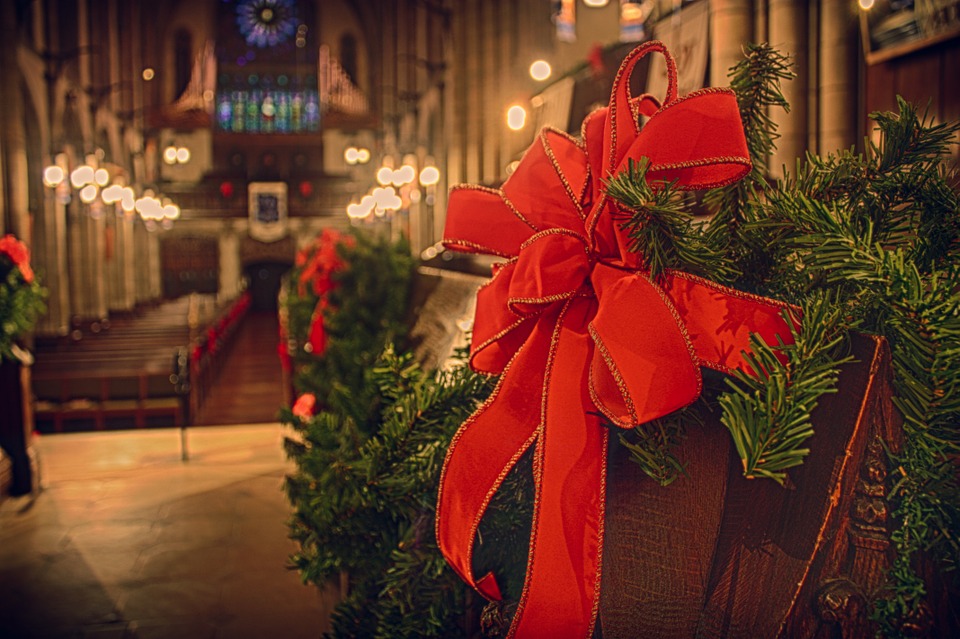Most pastors see Christmastime as a major outreach opportunity in their communities. That’s probably why a new survey examining Protestant churches revealed 89 percent of pastors plan to hold services as usual on Christmas Day, despite it falls on a Sunday this year.
Protestant clergy in the United States recently responded to a survey conducted by LifeWay Research. Senior pastors answered the question: “Christmas and New Year’s Day both fall on Sunday this year. As a result, does your church plan to have services on the following days?”
LifeWay Research found “Lutheran (94 percent), Church of Christ (93 percent), Baptist (91 percent), Presbyterian/Reformed (91 percent) and Holiness (92 percent) churches are most likely to say their church will hold Christmas Day services.”
Only a small minority of pastors surveyed (9 percent) have cancelled both Christmas Day and New Year’s Day services this year. Pentecostals (79 percent) being the least likely among Protestant denominations surveyed to hold worship services on both Christmas and New Year’s Day.
Josh Daffern, a pastor and Patheos Evangelical blogger, is among the small minority cancelling Christmas Day services. But before we judge too quickly, he says it’s for reasons you might not think. Among those reasons is (1) Daffern’s volunteer-heavy church traditionally takes the last Sunday service of the year to serve the community; (2) they want to be pro-family; and (3) his church is holding multiple Christmas Eve services, as Daffern explains:
Although we don’t know when he was born and most scholars agree it probably wasn’t December 25, the Christmas season is an opportunity that shouldn’t be squandered. So we’re not. One of the highest attended services of the year is not Christmas day but Christmas Eve, which this year falls on a Saturday. So we’re leveraging that high attendance event to present the hope of the gospel in Jesus.
I haven’t come across a church in my community yet that has cancelled Sunday worship on December 25. The only dilemma this presents for my husband and I is deciding where we will attend: my parent’s church; his parent’s church; or our local church.
A good problem to have, I know.






Comment by Byrom on December 17, 2016 at 12:17 pm
My UMC congregation is holding both Christmas Eve and Christmas Day services. We are also holding a New Year’s Day service, but not New Year’s
Eve. On Christmas Day and New Year’s Day, there will be only one worship service and no Sunday school.
On those two days, our one service will be unique. For going on two years, we have shared our facilities with a predominately black UMC, which had outgrown its facilities. My congregation is very diverse, with people from all over the world, including the U.S.A. We will be joining our two congregations in worship for the first time.
My preference would be to also have a New Year’s Eve service, because I think it’s important to prepare our hearts for what God has in mind for us in the coming year.
Comment by Rick on October 24, 2017 at 1:33 am
The celebration of Christmas was introduced in order to make it easier for pagans to convert to Christianity as Christmas was intended as a Christianized version of the pagan feasts of Saturnalia and the birth celebrations of the pagan gods Sol Invictus and/or Mithras (which feast Christianity was intended to replace differs between individual myth-propagators). St. Julius I, who was Bishop (it is anachronistic to call him “Pope” although most myth-propagators do) of Rome in the years 337-352 CE, is most often named as the culprit in the crime of transplanting the December 25th holiday from paganism to Christianity
Are not these things like Easter, Christmas, Sunrise Services, Lent ,Advent, Halloween ,midnight new years eve services all considered historical rooted in pagan beliefs and practised? How can you justify something that God the Holy Father does not mention in the Old or New Testament?